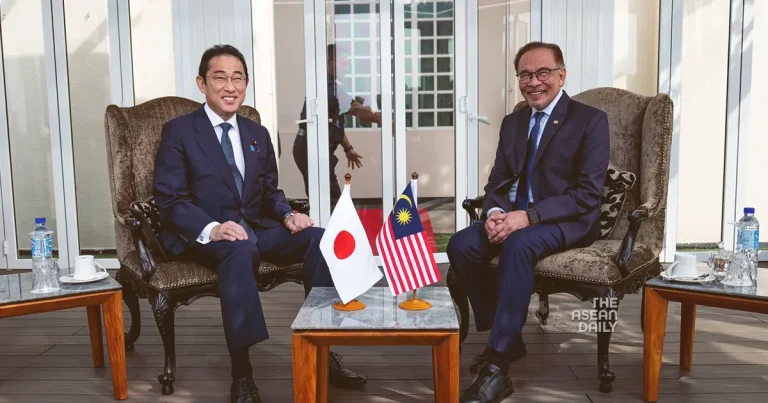6-11-2023 (KUALA LUMPUR) Malaysia will continue to import seafood from Japan, but it urges Japan to take into account the concerns of other countries in the region regarding the release of wastewater from the Fukushima Daiichi nuclear power plant. Prime Minister Anwar Ibrahim expressed his satisfaction with the report from the International Atomic Energy Agency (IAEA), the UN’s nuclear safety watchdog, on the waste water release during talks with his Japanese counterpart near Kuala Lumpur on Sunday.
While Japan assures that the release will have minimal radiological impact, Prime Minister Anwar hopes that Japan will consider the views and concerns expressed by Malaysia and other countries. In a joint statement, Anwar emphasized the importance of Japan continuing to take into account the perspectives of neighboring nations.
Japan Initiates Third Batch of Treated Waste Water Release
On Thursday, Japan commenced the release of a third batch of treated waste water from the Fukushima nuclear plant. Tokyo Electric Power, the plant operator, stated that 7,800 tonnes of water, which had been used to cool the reactors following the 2011 tsunami-induced meltdowns, would be gradually released. Since late August, the utility company has been releasing 540 Olympic swimming pool-sized amounts of stored waste water from the Fukushima plant. Japan claims that the released water is harmless, heavily diluted with seawater, and will be gradually released over the course of several decades.
Bilateral Cooperation and Investment Commitments
During the talks, the leaders of Malaysia and Japan also agreed to enhance bilateral defense and maritime security cooperation. Prime Minister Kishida mentioned their decision to accelerate adjustments towards implementing Tokyo’s Official Security Assistance (OSA) program, which aims to strengthen deterrence capabilities in partner countries. Japan has designated Bangladesh, Fiji, Malaysia, and the Philippines as OSA recipients, allocating 2 billion yen (US$13.3 million) for the fiscal year ending in March 2024.
Regarding investments, Prime Minister Anwar highlighted that Japan’s foreign direct investment commitment to Malaysia has exceeded 30 billion ringgit (US$6.3 billion) this year. He commended the commitment from companies already investing in Malaysia and their plans to expand further.
Strategic Partnership and Future Cooperation
Prime Minister Kishida emphasized that Japan and Malaysia are strategic partners in the region, working closely together for peace and stability. Kishida’s visit to Malaysia was part of his three-day trip, which also included a visit to the Philippines. The purpose of his tour was to lay the groundwork for a special summit involving leaders of the Association of Southeast Asian Nations (ASEAN), scheduled to take place in Tokyo in December to commemorate 50 years of friendship and cooperation. Kishida expressed his hope to establish a “new vision of cooperation” at the summit, while Prime Minister Anwar shared optimism about the future of Japan-ASEAN relations.




